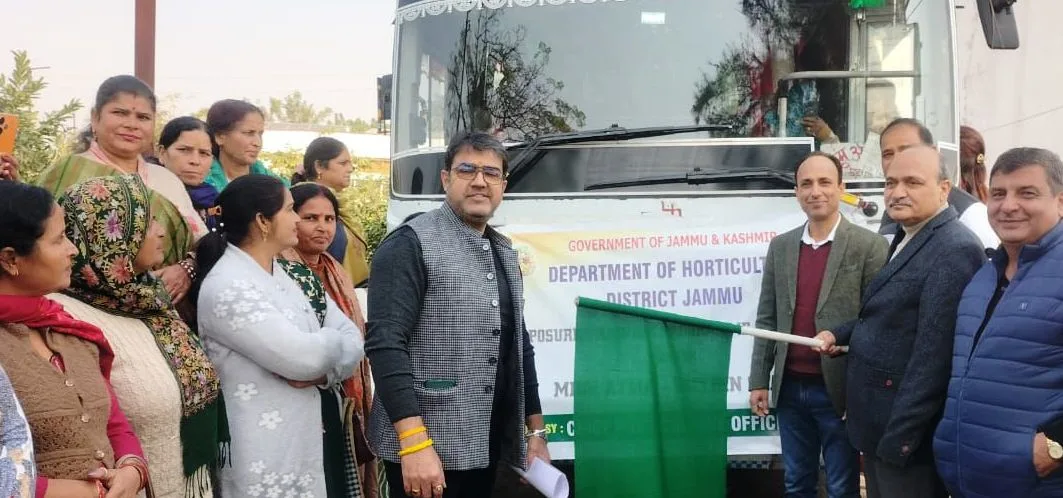JAMMU: Director Horticulture Jammu Chaman Lal Sharma flagged off a Farmers’ Exposure visit-cum-Training programme, here today.
The group of 150 touring farmers, including a significant number of female participants started here from the office of the Chief Horticulture Officer.
Over the course of the visit within the J&K UT, the participants will tour various Demonstration Sites, Hi-tech fruit plant nurseries, processing units and engage with horticultural experts to gain hands-on experience. These interactions are designed to enhance capacity building among farmers and trainees, enabling them to adopt advanced practices in fruit cultivation, processing, and marketing.
The tour was flagged off in the presence of Joint Director Horticulture Vikas Anand; Chief Horticulture Officer Rakesh Kotwal; Dean Horticulture SKUAST Jammu Dr Vikas Tandon; DLSMS Pomology Sandeep Gupta; DMPP Abdul Hamid and Horticulture Development Officer Amit Saraf.
Addressing the farmers before their departure, the Director underscored the pivotal goal of the program. “This initiative aims to familiarize farmers with the latest techniques and practices adopted by the horticulture department to enhance fruit production quality. Furthermore, it seeks to educate unemployed youth and trainees about the opportunities available for establishing small-scale fruit processing units to produce value-added products,” the Director stated. The programme also emphasizes the promotion of hi-tech polyhouses for cultivating off-season fruits, vegetables, and flowers—a strategy designed to secure better market returns for farmers, significantly increasing their incomes while generating employment for others in the region.
The Chief Horticulture Officer highlighted the value of exposure visits in equipping farmers and unemployed youth with innovative horticultural practices and entrepreneurial strategies. “By adopting advanced technologies and establishing small-scale processing units, participants can not only boost their income but also create employment opportunities within their communities,” Kotwal remarked.
A special focus of the programme was the empowerment of women farmers. Female participants were encouraged to explore entrepreneurial ventures in horticulture, contributing to their economic independence and strengthening the role of women in the agricultural sector.
Director Horticulture flags off Farmers’ Exposure visit’
A
A


